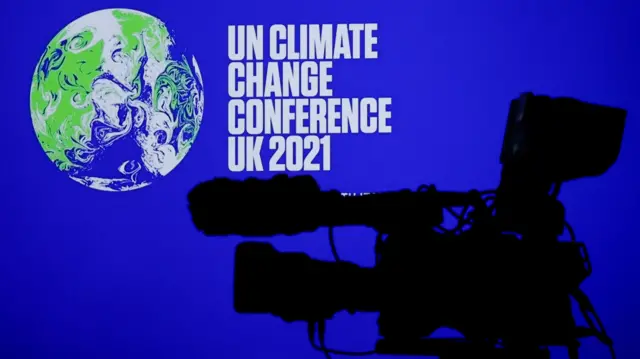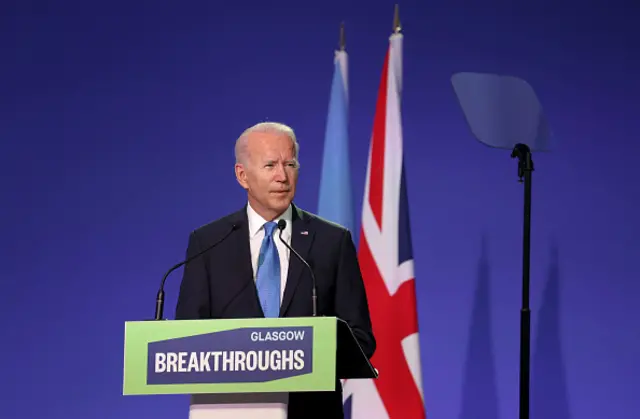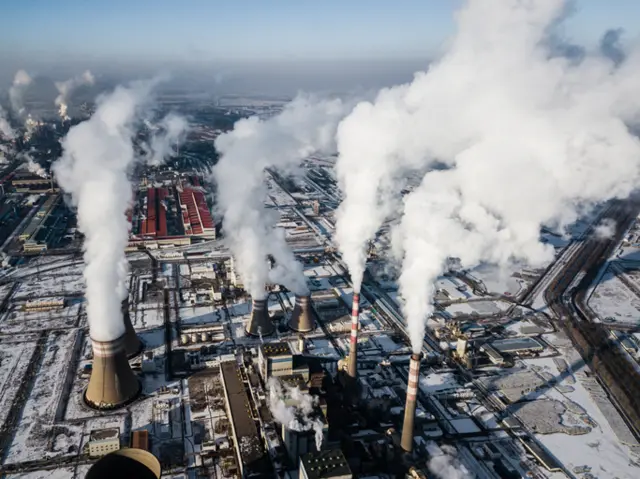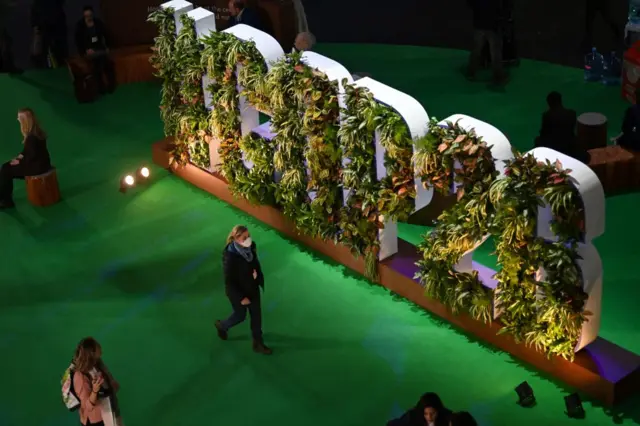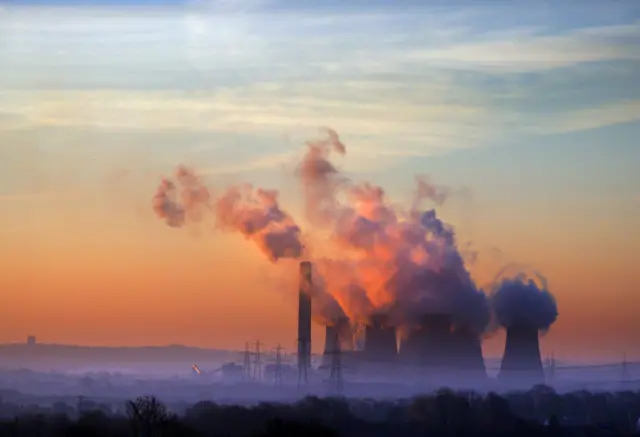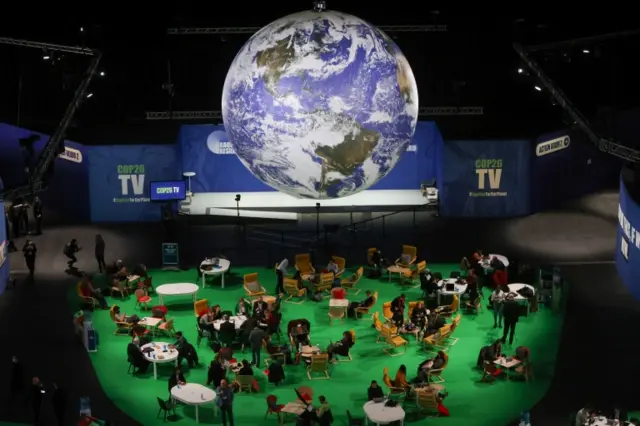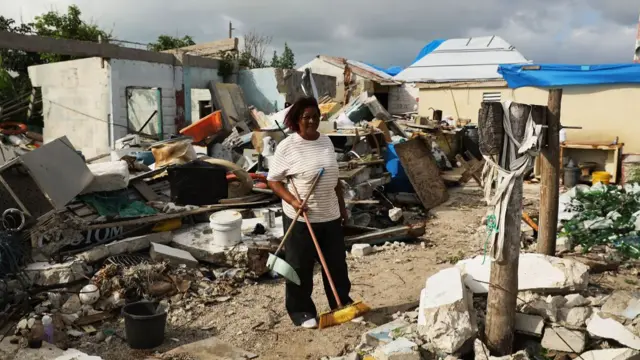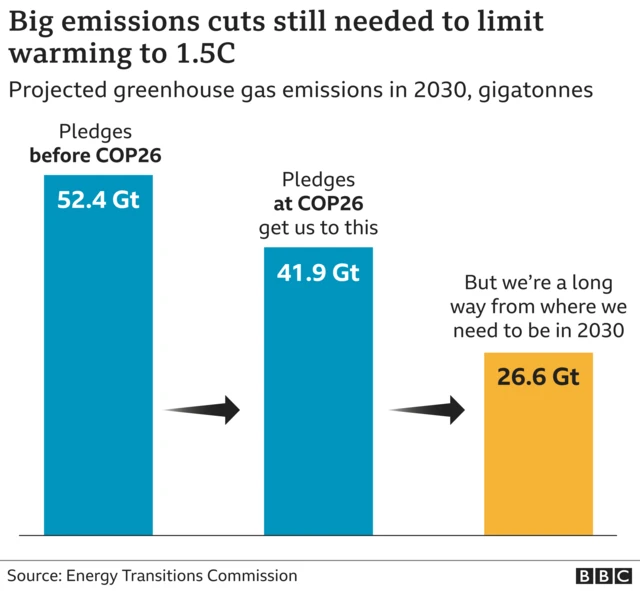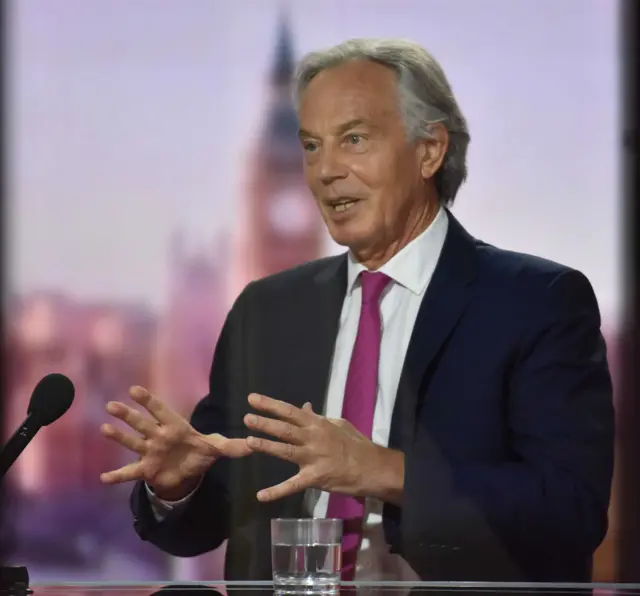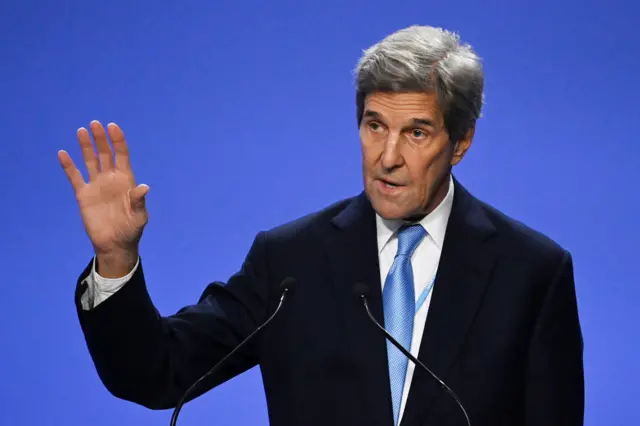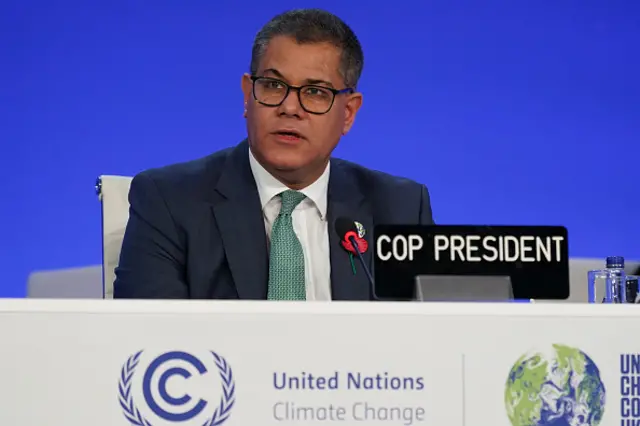Green MP: We need an almighty injection of urgencypublished at 10:48 GMT 13 November 2021
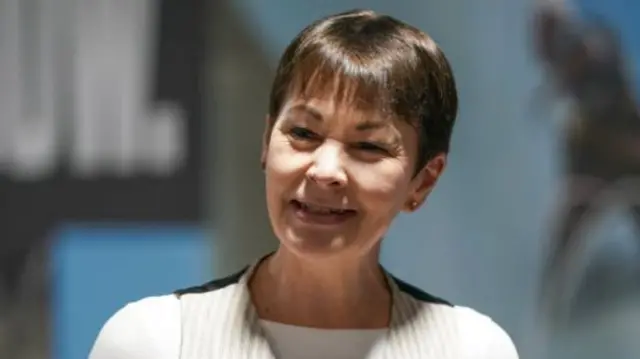 Image source, Getty
Image source, GettyLanguage on phasing out fossil fuels is key to any agreement and must remain in the final text, Green MP Caroline Lucas says.
The former Green Party leader tells the BBC: “That language on fossil fuels absolutely has to be in there and it has to be absolutely clear that it refers to all fossil fuels and we’re getting rid of all fossil fuel subsidies.
"There will be a big fight over that. And if that language on fossil fuels isn’t in the text it will be a serious blow.”
While negotiatiors "are arguing about whether or not the word 'urge' or 'requests' is a stronger verb", people are dying because of the effects of climate change, Lucas says.
Quote MessageIf we take a step back and just remember what is at stake here, we need one almighty injection of urgency into this because lives are on the line right now."
Caroline Lucas
